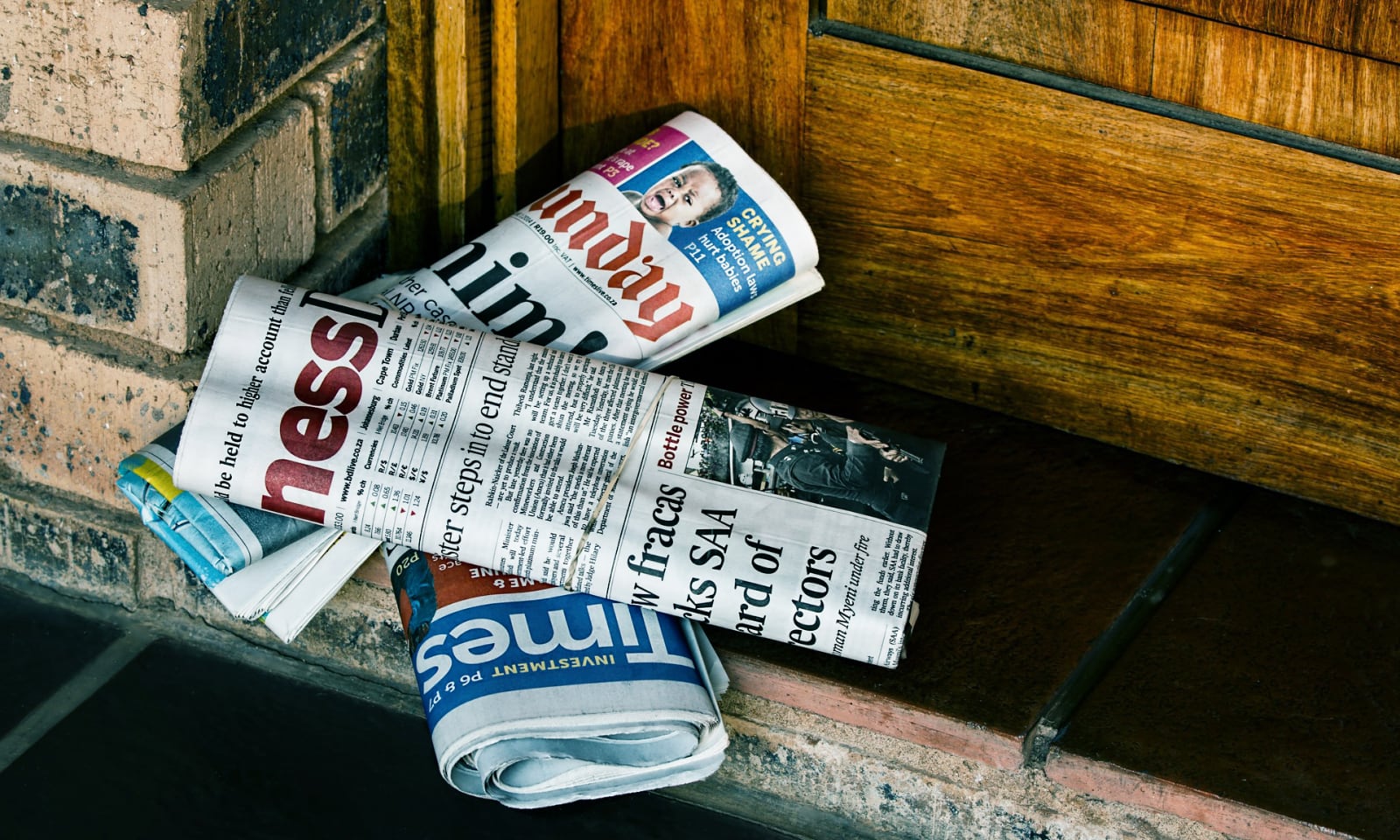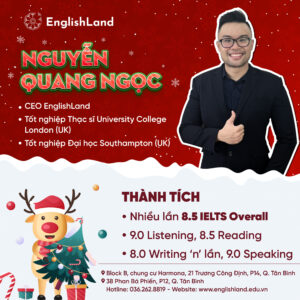TASK 2 (DISCUSS BOTH VIEWS): NEWSPAPERS
Some people think that newspapers are the best way to learn about news. However, others believe that they can learn news more effectively through other media. Discuss both views and give your own opinion.
Sample Answer
There are those who believe that news publications are the optimal way to get informed, while others argue otherwise, pointing to alternative media as more effective sources of updated information. This essay will discuss both viewpoints and present my personal stance on this matter.
Supporters of newspapers point to credibility as a legitimate argument in favour of this medium’s primacy. These proponents maintain that in order for a publication to reach the public, it often has to undergo a stringent process involving information accumulation, fact-checking, and rigorous editing prior to being officially published. Compared to other news outlets such as social media and tabloid newspapers, which tend to be less production-intensive, official physical newspapers are believed to guarantee high levels of accuracy and validity, thereby reducing unwanted instances of misinformation, bias, and propaganda. Salient examples include prominent news companies such as BBC News, The Guardian, and CNBC News, all of which have been known to produce high-quality, politically neutral, and unbiased news coverage for decades, thanks to their rigorous production process.
However, detractors of news publications cite other alternative and emerging media as more effective sources for getting informed. While newspapers are usually associated with high levels of authenticity, validity, and information accuracy, they are certainly not up-to-the-minute, a drawback that deprives this news medium of a sense of immediacy, hence its dwindling relevance among newsreaders. By contrast, online news outlets such as Sky News, Vietnamese Youth News, and Fox News can resolve this shortcoming by providing news consumers with real-time updates of global and local happenings, alongside in-depth commentary and numerous options to interact, comment, and share with the global audience. In this ever-evolving world, such advantages not only allow newsreaders to stay informed about the world at large but also enable them to raise their voices, spread concerns, and share knowledge with a wider audience, which can also partly contribute to an increasingly interconnected world.
In conclusion, although newspapers are usually credible and trustworthy sources of news, other alternative sources, including online news and social media, excel in terms of immediacy, real-time interaction, and the promotion of freedom of speech. In my view, the optimal way for a person to stay informed is to cross-check the information provided by both physical and online sources, while educating themselves on media literacy to become unbiased and informed readers.
Marking by Chat GPT
TỪ VỰNG HAY
Some people think that newspapers are the best way to learn about news. However, others believe that they can learn news more effectively through other media. Discuss both views and give your own opinion.
There are those who believe that news publications are the optimal way to get informed, while others argue otherwise, pointing to alternative media as more effective sources of updated information. This essay will discuss both viewpoints and present my personal stance on this matter.
Supporters of newspapers point to credibility as a legitimate argument in favour of this medium’s primacy. These proponents maintain that in order for a publication to reach the public, it often has to undergo a stringent process involving information accumulation, fact-checking, and rigorous editing prior to being officially published. Compared to other news outlets such as social media and tabloid newspapers, which tend to be less production-intensive, official physical newspapers are believed to guarantee high levels of accuracy and validity, thereby reducing unwanted instances of misinformation, bias, and propaganda. Salient examples include prominent news companies such as BBC News, The Guardian, and CNBC News, all of which have been known to produce high-quality, politically neutral, and unbiased news coverage for decades, thanks to their rigorous production process.
However, detractors of news publications cite other alternative and emerging media as more effective sources for getting informed. While newspapers are usually associated with high levels of authenticity, validity, and information accuracy, they are certainly not up-to-the-minute, a drawback that deprives this news medium of a sense of immediacy, hence its dwindling relevance among newsreaders. By contrast, online news outlets such as Sky News, Vietnamese Youth News, and Fox News can resolve this shortcoming by providing news consumers with real-time updates of global and local happenings, alongside in-depth commentary and numerous options to interact, comment, and share with the global audience. In this ever-evolving world, such advantages not only allow newsreaders to stay informed about the world at large but also enable them to raise their voices, spread concerns, and share knowledge with a wider audience, which can also partly contribute to an increasingly interconnected world.
In conclusion, although newspapers are usually credible and trustworthy sources of news, other alternative sources, including online news and social media, excel in terms of immediacy, real-time interaction, and the promotion of freedom of speech. In my view, the optimal way for a person to stay informed is to cross-check the information provided by both physical and online sources, while educating themselves on media literacy to become unbiased and informed readers.
Vocabulary
- news publications – ấn phẩm báo chí
- optimal way to get informed – cách tối ưu để cập nhật thông tin
- alternative media – phương tiện truyền thông thay thế
- sources of updated information – nguồn thông tin cập nhật
- credibility – độ tin cậy
- primacy – vị thế hàng đầu
- stringent process – quy trình nghiêm ngặt
- fact-checking – kiểm chứng thông tin
- rigorous editing – biên tập kỹ lưỡng
- production-intensive – đòi hỏi quy trình sản xuất công phu
- high levels of accuracy and validity – độ chính xác và xác thực cao
- misinformation, bias, and propaganda – thông tin sai lệch, thiên vị và tuyên truyền
- salient examples include prominent news companies – ví dụ nổi bật bao gồm các hãng tin danh tiếng
- high-quality, politically neutral, and unbiased news coverage – bản tin chất lượng cao, trung lập về chính trị và không thiên vị
- rigorous production process – quy trình sản xuất nghiêm ngặt
- alternative and emerging media – truyền thông thay thế và mới nổi
- up-to-the-minute – cập nhật từng phút
- sense of immediacy – cảm giác tức thời
- dwindling relevance among newsreaders – mức độ liên quan ngày càng giảm trong mắt độc giả
- shortcoming – điểm hạn chế
- real-time updates – cập nhật theo thời gian thực
- in-depth commentary – bình luận chuyên sâu
- ever-evolving world – thế giới không ngừng phát triển
- increasingly interconnected world – thế giới ngày càng liên kết chặt chẽ
- educating themselves on media literacy – tự trang bị hiểu biết về truyền thông
✔ DÀN Ý & PARAPHRASING
🔹 Introduction – Mở bài
- Topic: Newspapers vs other media → chủ đề: báo in và các phương tiện khác
- Paraphrase:
- “Newspapers” → news publications, printed media
- “Other media” → alternative media, online platforms
- “Learn news” → get informed, stay updated
- Structure:
→ There are those who believe that… / while others argue otherwise…
⤷ Giới thiệu 2 quan điểm + nêu rõ own opinion (ý kiến cá nhân ở cuối intro).
🧠 Cách paraphrase hợp lý: thay vì lặp lại “learn news”, tác giả dùng “get informed / stay informed / sources of updated information”.
👉 Giúp tránh lặp mà vẫn giữ đúng nghĩa.
🔹 Body 1 – Quan điểm ủng hộ newspapers
- Main idea: Credibility & accuracy → Độ tin cậy và tính chính xác.
- Key paraphrases:
- Credibility → trustworthiness, reliability
- Stringent process → strict checking procedure
- Rigorous editing / fact-checking → biên tập, kiểm chứng kỹ lưỡng
- Development:
Newspapers trải qua quy trình nghiêm ngặt (stringent process) → đảm bảo accuracy & validity → tránh misinformation, bias, propaganda.
→ Example: BBC, The Guardian → illustrate politically neutral, high-quality coverage.
🧠 Kỹ thuật paraphrase & triển khai:
Dùng collocations học thuật: high levels of accuracy, politically neutral coverage → tăng điểm từ vựng (Lexical Resource).
🔹 Body 2 – Quan điểm ủng hộ other media
- Main idea: Immediacy & interactivity → Tính tức thời và tương tác cao.
- Paraphrases:
- Other media → online outlets, digital platforms, emerging media
- Updated quickly → real-time updates, up-to-the-minute news
- Immediacy → instant access, fast dissemination
- Development:
So sánh: newspapers slow → lack sense of immediacy → dwindling relevance among readers.
Online media → provide real-time updates, in-depth commentary, interactive features → help readers raise voices, share knowledge, and create an interconnected world.
🧠 Cách triển khai từ keyword:
Từ keyword “media” → mở rộng ra alternative, emerging, online, digital.
Từ keyword “fast” → mở rộng thành real-time, up-to-the-minute, immediacy.
🔹 Conclusion – Kết bài
- Restate both views: newspapers → credibility / online media → immediacy.
- Opinion: the best way → cross-check information + develop media literacy.
🧠 Từ khóa + paraphrase:
- Check news carefully → cross-check information
- Understand media → educate themselves on media literacy
✨ Tổng kết:
- Không lặp từ khóa chính:
- “news” → information / updates / coverage / reports / publications
- “media” → platforms / outlets / sources
- Dùng cụm học thuật (academic collocations):
- stringent process, rigorous editing, sense of immediacy, real-time updates, increasingly interconnected world
- Triển khai ý theo cặp đối lập (contrastive development):
- credibility ↔ immediacy
- accuracy ↔ speed
- Kết hợp collocations + paraphrase tự nhiên:
→ Giúp bài vừa đa dạng từ vựng, vừa logic và cohesive (tăng band Lexical & Coherence).


